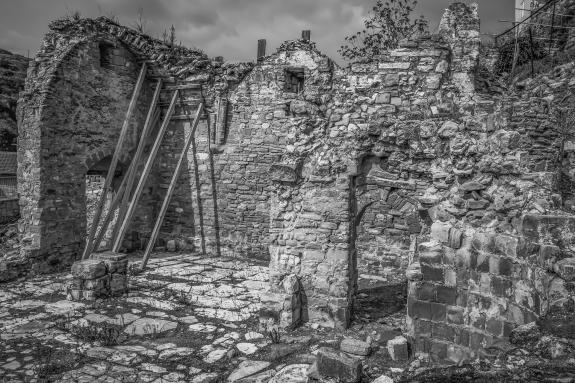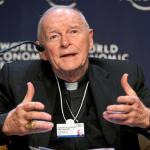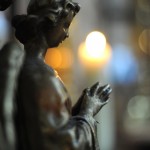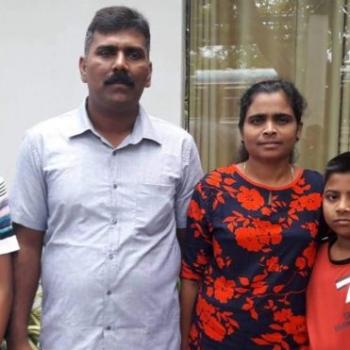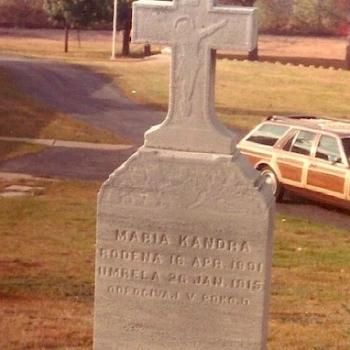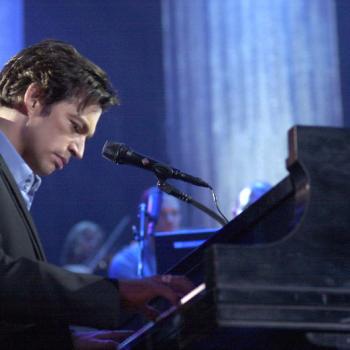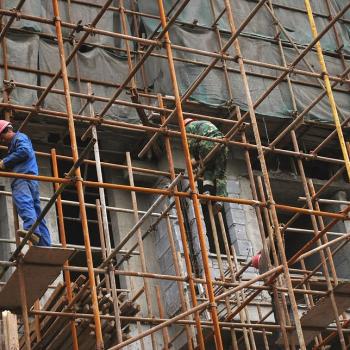Thursday, I found myself in Maryland for a family funeral.
One of the first people I saw was one of my nephews, Frank, a young husband and father in his early 30s with four sons under the age of 7. Frank’s wedding was the first one I took part in as a deacon 11 years ago, just days after I was ordained. My wife and I are godparents to one of his sons. After chatting for a few moments, he asked me about my job and life here at the parish and how things were going. We fell silent for a moment and then he looked at me and out of the blue quietly said what was on both of our minds:
“It’s a terrible week to be Catholic.”
Everyone here this morning knows exactly what he meant. We’ve all felt it. We’ve watched the news. Seen the headlines. Read the report. Some of us have spent sleepless nights staring at the bedroom ceiling, asking again and again, “Why? How?” We’ve whispered prayers. Shed tears.
Our hearts are heavy with grief—but there is more than just that. There’s anger. Bitterness. A sense of betrayal. A feeling of helplessness.
It was a terrible week to be Catholic.
Reading about this, praying about it, I found myself thinking not of where we are, but where we were. Where we have been. I found myself thinking of others who have gone before us—as we pray, “marked with the sign of faith.” Some we know. Most we don’t. Most are anonymous people, unknown men and women whose names are known only to God.
I was thinking of the first Christians, who quietly prayed and sang hymns and held onto each other’s hands as they stepped into the sand of the coliseum and faced certain, immediate, violent death. Yet, their witness moved so many unbelievers. Their courage and tenderness and compassion prompted a Roman soldier to say words that have echoed down through history: “See how these Christians love one another,”
I’ve been thinking of France. In the 18th century, persecution was widespread. During the Reign of Terror, as many as 30,000 priests fled the country. Thousands more were forced to stop celebrating the sacraments. Many were executed. Hundreds of churches were shut down completely. People prayed in secret, with some brave priests offering Mass in windowless darkened rooms, so no one could detect the burning candles on the makeshift altars. But out of this nightmare grew some of the greatest saints of our history—Jean Jugan and Vincent de Paul and Bernadette of Lourdes, along with tens of thousands of sisters, priests, brothers and lay missionaries who carried the faith around the world with new zeal, passion and hope.
I’ve also been thinking of Dachau. In a corner of that notorious concentration camp, the Nazis set up Der Priesterbloch, where clergy were kept. As the world crumbled and the furnaces burned, these priests asked themselves “What can we do when this is over? How can we make a better world?” When the war ended, they left the camp and entered a Europe in ruins. Brick by brick, stone by stone, they set about putting it back together. A new generation of lay people and priests rose up to spread the Gospel and minister to the poor and help remake the world.
Out of this grew the modern-day diaconate—born out of a desire to serve, especially to serve the weak, the broken, the hungry, the poor.
See how these Christians love one another.
And: I’ve been thinking of Syria.
A couple years ago from this pulpit, I preached about the most remarkable First Communion picture. Dozens of boys and girls in white dresses and suits stood in the middle of a church for their First Communion. But the church was barely a church at all. It was in ruins. Windows shattered. Walls crumbling, pockmarked by bullets. Ceiling all but gone. Scaffolding had been erected everywhere, as workers were trying to repair the damage brought about by a long and brutal civil war.
But in the middle of all this, the bishop told the children: “I wanted you to have your First Communion here, in this broken, damaged church, to let you know there is hope.”
His message: “You will help to rebuild it. You are hope. We will do this together.”
This is my message this morning.
It was a terrible week to be Catholic. But it’s not the only terrible week we have known. And it won’t be the last. Right now, we walk through the wreckage of a broken world with the smell of sulphur in the air and the taste of our tears on our lips. Our eyes are red from weeping. Our hearts are heavy with sorrow and rage.
But we know this isn’t how our story ends. We pick up the rocks. We rebuild.
Because what we have and what we will be is so much greater than any of this.
As I mentioned two weeks ago: the evil of a few cannot destroy the staggeringly beautiful love of so many.
Centuries ago, God spoke to a rich young man in the heart of Italy and told him, bluntly, “Rebuild my church.” Francis of Assisi did. He helped transform the church, helped it to rediscover its roots. In a time of corruption and deceit and sin, he carried forth a transcendent message of hope. A message of healing. A message of love.
We can do no less.
The Sunday scriptures these last few weeks have offered us the Bread of Life discourse—a long narrative from John’s Gospel that begins with an astounding miracle. From a few scraps of food, Jesus fed multitudes. It is almost like another Genesis: Out of nothing, he made everything, enough to satisfy everyone.
Well, with that in mind, it is useful to remember the first words God speaks in Genesis: “Let there be light.”
We need light now, more than ever. Light to scatter our doubts and fears. Light to point the way. Light to clean and disinfect and remove all shadows, all suspicion, all suffering, all pain.
Light to help remake the world.
Let there be light.
Let there be lay people and deacons and priests and bishops who will keep that light burning.
Friday, a young priest from Rockville Centre posted his thoughts about all this on Facebook. Like a lot of priests, these last few days have been devastating for him.
But here is what he had to say:
“I have never known a Church that has been without stain, the ‘good old days’ never existed for me, and I have never had a comfortable Catholicism’— and praise be to God for that. Because God does not call any of us to be comfortable or complacent; He calls us to be saints. Time and time again when there has been pain and struggle in the Church, God has raised up great saints.
God will never abandon His Church.”
This is our calling. One we can only answer with prayer.
Pray for our Church. Pray for our priests and bishops. Pray for all who are suffering right now—victims, family members, people who are finding their faith shattered. Pray that we may meet this moment with courage and with hope.
This moment is a challenge for each of us to be who God needs us to be. We are being called to be the next great generation of saints—to pick up each crumbling brick and rebuild what has fallen and to do it, as so many have done it before.
With faith. With hope. And with love.
We can. And I know we will.
Because what we have and what we will be is so much greater than any of this.

